Electrolytes 101

Electrolytes are electrically charged ions that help your body to balance fluids and conduct the electrical impulses for muscle and nerve function. The main electrolytes include sodium, potassium, calcium, magnesium and chloride. These minerals aren’t actually considered as a direct source of energy, but they are certainly pivotal for performance as they are involved with maintaining balance, and helping to avoid muscle cramping and weakness.
Electrolyte Rich Foods
You’ve likely heard of the popular electrolyte rich sports beverages, but what’s not talked about as often is the foods that contain high amounts of electrolytes. Understanding the link with electrolytes and diet is important to know if you’re planning a marathon or other lengthy physical endeavour. Yet, it’s also important because the truth is that most casual athletes get enough of the mineral salts from a varied and healthy diet, alone! That’s right. Eating plenty of these foods will likely be enough to restore and replenish lost electrolytes from physical activity for the average exerciser.
- spinach
- carrots
- beetroot
- apples
- oranges
- tomatoes
- celery
- cucumbers
- kiwi
- bell peppers
- pineapple
- sweet potatoes
- coconut water
- nuts & seeds
- beans & legumes
However, if you’re workouts involve losing tons of fluid on a regular basis, or, if your workout clothes are stained white from salt marks – you’ll likely want to tune in a little further to determine your true electrolyte needs. Although everyone is different, for most people it’s pretty clear to see the dehabiling effects of an electrolyte deficiency has on performance. Thankfully it’s also usually a fairly easy issue to solve. Approaching electrolyte rebalancing from both dietary and supplemental perspective is wise.
Signs of Electrolyte Imbalance and Dehydration
Usually, if the body is undergoing an imbalance in electrolytes it doesn’t take a long time to notice. The symptoms, which are in relation to losses with the neuromuscular function and increased blood acidity which are caused by a fluid deficit >2% of body weight can “compromise cognitive function and reduce aerobic exercise performance, making exercise seem harder” [1]. Of course, this is not the outcome we want when trying to achieve peak performance!
Sweat contains mostly the electrolytes sodium and chloride, but depending on which on the electrolyte salts is out of balance the symptoms may appear differently. Most commonly they include:
- Muscle cramping or spasms
- Muscle Weakness
- Nausea
- Lethargy
- Fluid Retention
More serious electrolyte imbalances may also cause changes in the heartbeat, problems with digestion, pain in the bones, and cognitive changes such as dizziness, disorientation, anxiety or confusion. Sometimes the imbalances linked to mineral loss involve other causes besides sweating (vomiting, diarrhea, certain medications, thyroid disorders, kidney disease, intestinal malabsorption) — these should always be taken seriously.
Preventing Imbalances
Eating a variety of healthy foods and ensuring adequate (naturally occuring) sodium in foods prior to strenuous activity is the baseline for helping to retain fluid balance, leading to unhindered performance. This, paired with the best practices listed below, along with a great electrolyte supplement (when needed) will virtually guarantee that you’re staying balanced!
- The goal is to begin exercising with as close to normal electrolyte and hydration levels as possible, as a healthy level of fluids prior to exercise is the most important factor in staying balanced during and after exercise! Be sure to drink enough water so that your urine is clear and doesn’t contain an odour (note certain vitamins may skew this).
- The idea is to drink when you’re thirsty and don’t overdo the hydration because you feel the need to replenish all of the lost fluids (the body will signal naturally what needs to be rehydrated based on thirst). It’s important to note that if significant dehydration occurs it may take upwards of 24-48 hours for the body to naturally recover. Eating sodium rich foods or fluids after exercise can help with fluid retention.
- If undergoing strenuous endurance exercises (and sweating) for longer than 45-60 minutes, it is smart to consider supplementing with electrolytes. Some formulas will include carbs for sustained energy (i.e sports drinks), whereas some will only include electrolytes and water, or powders to be added to water. PVL Game Ade , PVL Amino Complete and Optimum Nutrition Amino Energy + Electrolytes are a few of the highly effective, well formulated products that’ll allow for enhanced fluid absorption and rehydration.
- A general rule of thumb is to replenish no more than 4-6 ounces every 20 mins during the activity.
It’s clear to see that electrolytes play a very important role in peak performance. Combining the benefits of eating a well balanced balanced diet, with learning the signs and symptoms of electrolyte imbalances, along with a well formulated electrolyte replacement will all help to ensure optimal performance and recovery! If you want to know what supplements can help, come in and visit us in store, or hit us up on Facebook, Instagram or Twitter. We are #ReflexNation.




